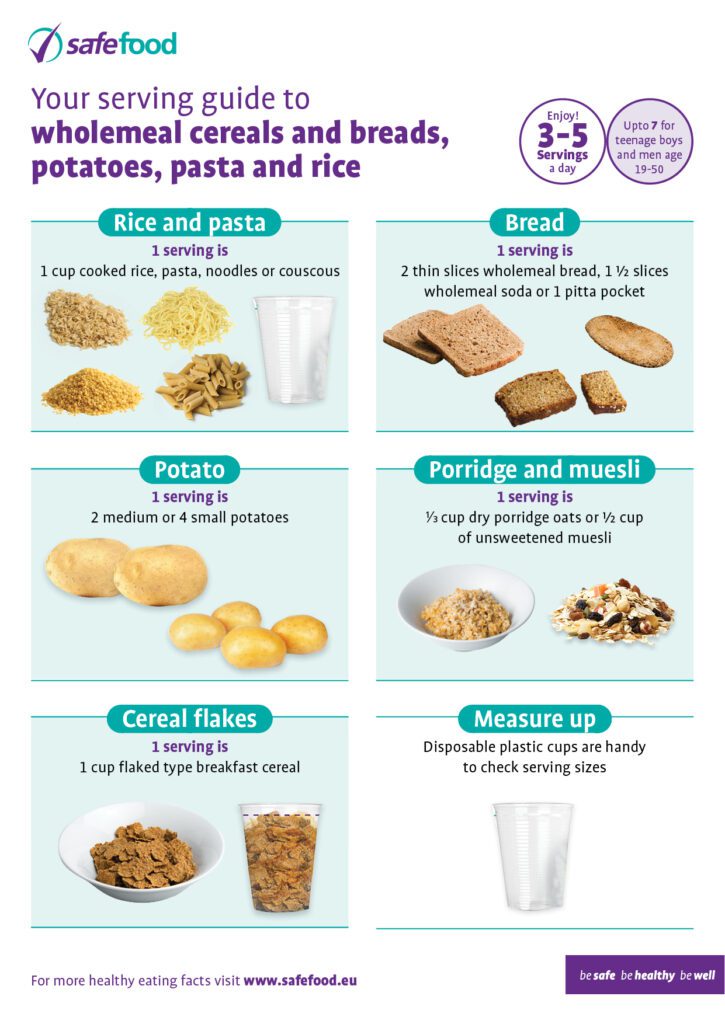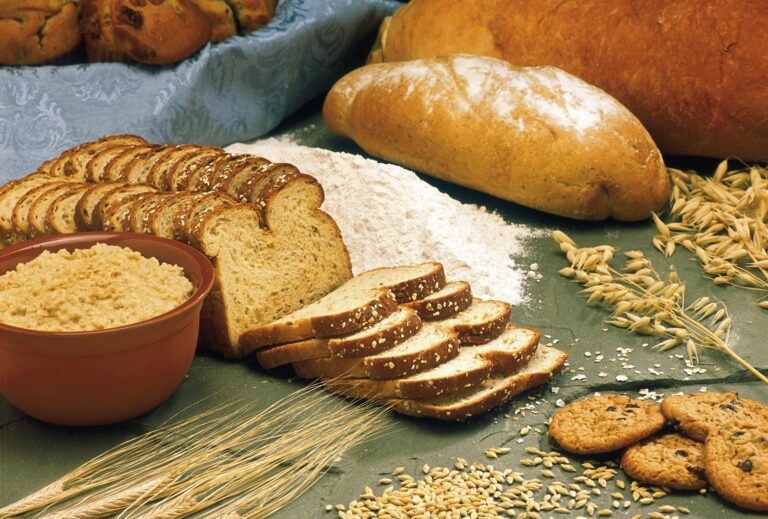[vc_row][vc_column width=”2/3″][vc_column_text]By Divya Ravikumar, Health Promotion Student and Registered Dietitian
What are carbohydrates?
Carbohydrates are one of 3 macronutrients (nutrients that form a large part of our diet) found in food – the others being fat and protein. Hardly any foods contain only 1 nutrient, and most are a combination of carbohydrates, fats and proteins in varying amounts. Typically, carbohydrates can be divided into the following categories:
- simple/free sugars (jam, sweets, fruit juice)
- complex/starchy carbohydrates (bread, rice, potato).
What counts as free sugars?
Free sugars are any sugars added to food (e.g. biscuits, chocolate, cake) or sugars naturally present in honey, syrups and fruit juices. There is a lot of media and public interest in ‘sugar’ and the sugar debate can be very confusing as sugar can be found in many foods. Recent recommendations have suggested that it is important to be aware of ‘free sugars’ and to limit our intake of these. It is recommended that adults consume no more than 30g free sugar (approximately 7 teaspoons) per day. Make sure to be label aware as some carbohydrate foods (particularly processed items such as ready meals) can contain high levels of free sugars.
Where are free sugars found?
Table sugar, syrup, treacles, honeys, coconut sugar and fruit juice are all examples of free sugars.
What does not count as free sugar?
Natural sugars found in milk, fruit and vegetables.
Why do we need carbohydrates?
All carbohydrates will be converted to glucose, which can be used by our body as a source of energy, to keep our muscles and organs working.
Should I cut down on carbohydrates?
While we can most certainly survive without sugar, it would be quite difficult to eliminate carbohydrates entirely from your diet. Carbohydrates are the body’s main source of energy. In their absence, your body will use protein and fat for energy. It may also be hard to get enough fibre, which is important for long-term health. Healthy sources of carbohydrates, such as higher fibre starchy foods, vegetables, fruits and legumes, are also an important source of nutrients, such as calcium, iron and B vitamins. Significantly reducing carbohydrates from your diet in the long term could put you at increased risk of insufficient intakes of certain nutrients, potentially leading to health problems.
Cutting out carbohydrates fully from your diet could put you at increased risk of a deficiency in certain nutrients, leading to health problems, unless you’re able to make up for the nutritional shortfall with healthy substitutes. Replacing carbohydrates with fats and higher fat sources of protein could increase your intake of saturated fat, which can raise the amount of cholesterol in your blood – a risk factor for heart disease. When you’re low on glucose, the body breaks down stored fat to convert it into energy. This process causes a build-up of ketones in the blood, resulting in ketosis. Ketosis as a result of a low-carbohydrate diet can be linked, at least in the short term, to headaches, weakness, nausea, dehydration, dizziness and irritability. Try to limit the amount of sugary foods you eat and instead include healthier sources of carbohydrate in your diet, such as wholegrains, potatoes, vegetables, fruits, legumes and lower fat dairy products.
What happens if we don’t get enough carbohydrate?
If we do not have enough carbohydrate in our diet, our bodies can convert fatty acids into ‘energy’ to meet the demands of our brain. This causes the increase in levels of ketones in our bodies, which in rare cases has caused serious problems. It is very rare that you would have insufficient carbohydrate in your diet unless chronically malnourished or following an extremely low carbohydrate diet which is also lacking in protein. Some people with diabetes can be at risk of hypoglycaemia (too little blood glucose), which can be a result of a mismatch of dietary carbohydrate with medication and exercise. This potentially can also happen in some athletes performing endurance exercise. For most people this is rarely an issue, and if symptoms of low blood sugar occur, these should be medically investigated. Our brains tend to favour using glucose for energy, if we don’t have enough in our diets, then our brains have to adapt to using fats called ketones. While this adaptation is happening, the body has to breakdown protein, which could lead to loss of muscle.
Low – carb diets and weight loss
Low-carbohydrate diets (i.e. defined as diets containing between 50g and 130g carbohydrate) can be effective in managing weight, improving glycaemic control and cardiovascular risk in people with Type 2 diabetes in the short term i.e. less than 12 months (Diabetes UK 2018). This is probably due to the accompanying reduction in energy (calorie) intake and subsequent weight loss (Diabetes UK 2018).
More research is needed to ascertain the long-term health impacts of low-carbohydrate diets, including on heart health. For this reason, it is best to adhere to Irish healthy eating and portion size guidelines as detailed below.
If you choose to adopt a low-carb diet
It is still possible to adhere to standard portion sizes and serving guidelines and adopt a low-carb diet.
For example, having one portion of oats at breakfast, 2 slices of bread at lunch and 4 baby potatoes at dinner, along with an apple, orange and a banana would add up to approximately 123g carbohydrate. This falls within low-carbohydrate guidelines and would still meet Irish eating healthy guidelines for carbohydrate and contributes towards your fruit and vegetable intake for the day.
We do not recommend restricting fruit intake as it does not contain large amounts of carbohydrate in the correct portion size and fruit is an excellent snack and source of vitamins, minerals and fibre.
 [/vc_column_text][/vc_column][vc_column width=”1/3″][vc_single_image image=”6122″ img_size=”medium”][vc_single_image image=”6117″ img_size=”medium”][vc_single_image image=”6118″ img_size=”medium”][vc_single_image image=”6119″ img_size=”medium”][/vc_column][/vc_row]
[/vc_column_text][/vc_column][vc_column width=”1/3″][vc_single_image image=”6122″ img_size=”medium”][vc_single_image image=”6117″ img_size=”medium”][vc_single_image image=”6118″ img_size=”medium”][vc_single_image image=”6119″ img_size=”medium”][/vc_column][/vc_row]
